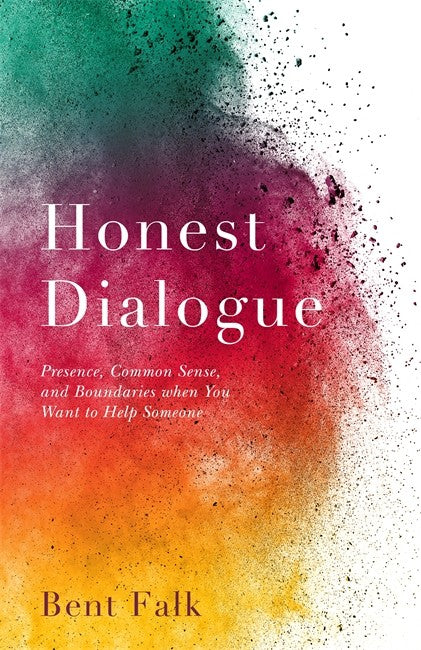Preface. I. Introduction. 1. Technique or Attitude. 2. Crisis. 3. Anxiety and Primary Feelings. II. Practical Guidelines. 1. It is Less Complicated Than You Think. 2. All Essential Resources for Overcoming a Difficulty are in the Person Having the Difficulty, or in the Field of Interaction Between the People in Dialogue. 3. Good Help is Help Towards Self-Help. All Other Help is Intrusion. 4. When, As the Helper, You Don't Know What to Say or Do, That is What You Should Say or Do. 5. Don't Let Having a Problem Turn Into a Problem in Itself. 6. Boundaries Make Contact. 7. You Cannot Change What You Do Not Accept. 8. The Consolation is That There is No Consolation. 9. The Person in Distress Does Not Need Consolation, but Love. 10. Life is Neither Fair Nor Unfair. 11. Guilt and Power are Two Sides of the Same Coin. 12. Forgiveness Does Not Remove Guilt. It Re-establishes the Relationship in Spite of the Guilt. 13. And and but: The Small Words with the Biggest Effects. 14. Helping Through Dialogue: In Reality it is Possible and Not Too Difficult. III. Examples. 1. The Meaning. 2. Expanding on the Concept of Meaning. 3. Possible Answers When Your Old Ones Don't Lead to the Kind of Contact You Want. 4. Commentary to the 'New' Answers. Bibliography.
Request Academic Copy
Please copy the ISBN for submitting review copy form
Description
'This book is without comparison, the best I have ever read on dialogue therapy. Bent Falk is able to describe difficult problems and dilemmas, with an unrivalled simplicity and accessibility.'
- Ralph Kauffmann, M.D., Gentofte, Denmark
'The art of establishing contact through awareness and presence is described so that everyone will understand it. Included are dialogues that provide examples of questions and answers.'
- Katja Larsen, selective reader for the Danish libraries
'This book provides several concrete tools for the art of dialogue, whether it be in a professional context or in private. This is the best starting point for a dialogue about what the individuals seeking help are able to change in their lives, what the cost of this change would be, and how they can be better equipped to cope with that which cannot be changed.'
- Lotta Haettner Sandberg, M.Div. Counselor, teacher and trainer at the Pastoral Seminary of the Church of Sweden, Lund

